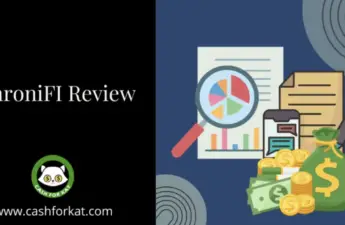
It’s all too easy to make impulsive decisions when your bank account is looking a bit thin. The stress of financial confusion and worry about bills can cloud our judgment, leading to choices we might later regret. But it’s crucial to remember that rash actions rarely solve money problems – they often make them worse. This is cold comfort when you’re in the middle of a situation like this, however.
When your personal cash flow issues do occur from time to time, it’s tempting to reach for quick fixes. You might consider maxing out your credit cards, or even borrowing from less-than-reputable sources. Thankfully, there are many helpful alternatives such as with loan affiliate schemes, but unless you have a plan to pay it off, it’s best to avoid making a snap decision.
After all, any knee-jerk reactions can trap you in a debt cycle that’s hard to escape.
For that reason, it’s quite vital to approach whatever financial struggles you’re having with a clear head and a solid plan. In this post, we’ll explore some strategies to help you navigate cash flow problems without resorting to hasty decisions.
Take a Deep Breath & Assess Your Situation
Don’t stress. You have the time and the breathing room to analyze your situation appropriately and move on from it if you give yourself a few deep threats.
Before doing anything immediate, it’s wiser to get a clear picture of where you stand financially. Sit down and list out all your income sources, expenses, and debts. Don’t shy away from the numbers, even if they’re not pretty.
Understanding the full parameters of your situation is the first step to improvement, and you’ll be thankful you did it. You might find areas where you can cut back or reallocate spending, subscriptions you could cut, or even realize you’ve been getting underpaid at work. It all counts.
Prioritize Your Expenses
When money’s short, not all bills are created equal. Focus on covering your “priority” needs first – this includes obvious examples like housing, utilities, and food.
Then try to look for areas where you can temporarily cut back without jeopardizing your long-term financial health – for example, you might be fine selling your car and taking public transport to work if needed for a while.
Or, if the situation isn’t in need of such drastic change, you might reduce your internet speed plan or get a cheaper phone. Perhaps you can even negotiate with some creditors for lower payments or interest rates. Many companies are willing to work with customers facing temporary hardship too.
Explore Additional Income Streams
Now, “work harder and earn more” is hardly good advice. However, sometimes, the best solution to a cash flow problem means understanding how your cash is actually flowing.
Maybe you would prefer to apply for a more stringent, if less flexible salaried job because it means you can rely on a fixed pay date instead of relying on constant freelance invoices to buoy you. It all has a genuine effect, and simply working through your options and the cash flow streams can help you define better opportunities.
With this advice, you’ll be certain to avoid acting rash, even if you’re struggling with that personal cash flow.

